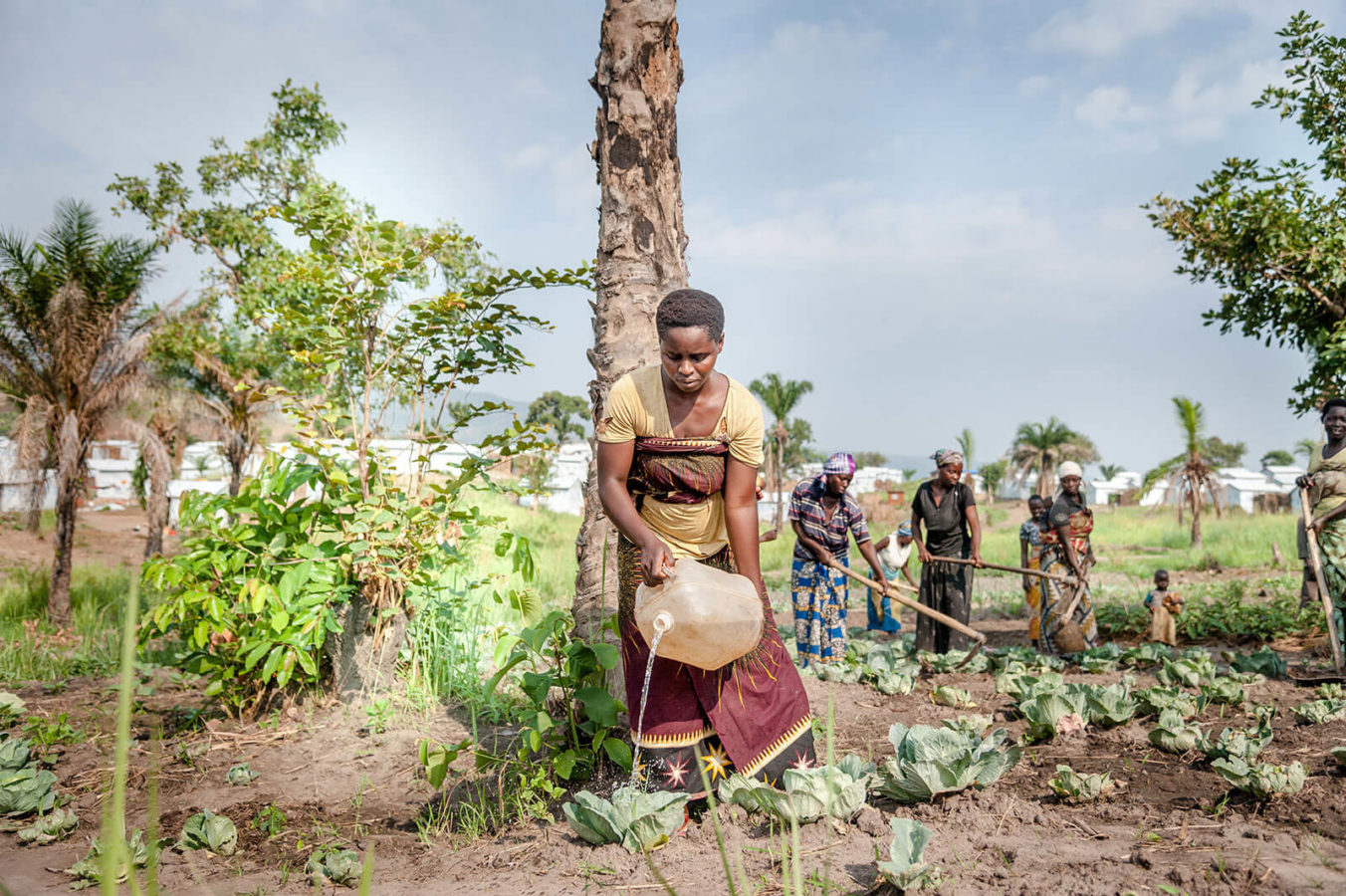The United Nations Women’s Peace and Humanitarian Fund (WPHF) is channeling institutional and programmatic funding to local civil society organizations and women activists in the Democratic Republic of the Congo (DRC) working to advance the leadership of women and girls in humanitarian planning and response, protect them against sexual and gender-based violence (SGBV), and enhance their participation in peacebuilding and recovery efforts across the country.
Overview
In the DRC, WPHF has supported 89 civil society organizations under its Regular Funding Cycle and Rapid Response Window, and 63 women human rights defenders under its Window for WHRDs.
WPHF is channeling critical programmatic and institutional support to local women’s organizations working on the following impact areas:
- Impact Area 3: Humanitarian and Crisis Response
- Impact Area 5: Protection of Women and Girls
- Impact Area 6: Peacebuilding and Recovery
Project Highlights
Explore a sample of key women’s rights and women-led projects that WPHF has supported across the DRC:
- Under its Regular Funding Cycle, WPHF has supported the Association des Femmes pour la Promotion et le Développement Endogène (AFPDE) on a project to reinforce the capacities of women’s organizations and associations in tackling SGBV in Uvira, Fizi and Walungu, three territories located in the South Kivu Province.
- Under its Regular Funding Cycle, WPHF has supported the Association of Rural Development Technicians and Environmentalists from Bikoro (ATDERBI) on a project to support the agro-pastoral activities of 500 women-headed households following the Ebola outbreak in lkoro, lmpenge, Bokeya-Ngombe and ltipo, three villages located in Bikoro, a territory in the Équateur Province.
- Under its Regular Funding Cycle, the WPHF and Spotlight Initiative partnership has supported Sauti Ya Mama Mkongomani (SMM) on a project to advocate for the implementation of laws against SGBV in the family, targeting police officers, students, teachers and religious groups while providing legal support to survivors through a legal clinic.
- Under its Regular Funding Cycle, the WPHF and Spotlight Initiative partnership has supported Fondation Femme Plus (FFP) on a project to implement income-generating activities aimed at improving the living conditions of vulnerable women, increase the knowledge of young people on reproductive health, and combat violence against women in the Central Kasai Province.
- Under its Regular Funding Cycle, WPHF has supported Action pour la Réinsertion Sociale de la Femme (ARSF)on a project to support the socio-economic recovery of marginalized women and survivors of multiple forms of discrimination to consolidate peace in the Walungo territory of the South Kivu Province.
- Under its Regular Funding Cycle, WPHF has supported Promotion des Valeurs Humaines (PROVAH) – together with DAFED and CERACOD – on a joint project to rehabilitate 15 kms of agricultural tracks, four football fields, and four cultural spaces to foster peace at the community level. The project also aimed to generate socio-economic opportunities for women repatriated from refugee camps in Tumbwe, Mulange and Kalemie-Tanganyika, three municipalities in the Tanganyika Province.
Amplify the Voices of WPHF Partners in the DRC
In Her Own Word: Meet Our Partner LéaMore Resources on WPHF in the DRC
DRC EMERGENCY FUNDING APPEALSee our list of previous Call for Proposals (CFPs) in the DRC:
DRC CALL FOR PROPOSALS - ROUND 3: CLOSED DRC CALL FOR PROPOSALS - ROUND 2: CLOSED